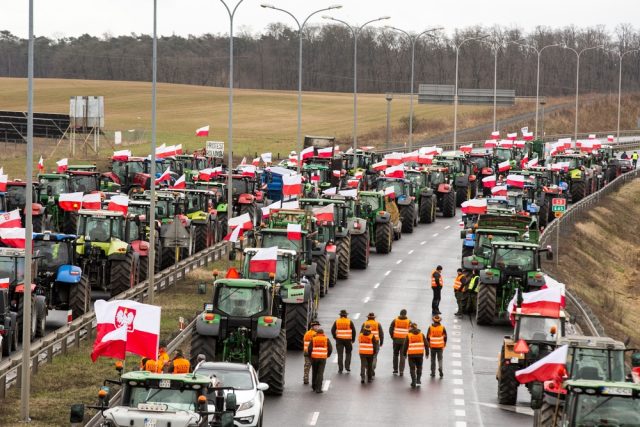
Poland’s presidency of the Council of the European Union represents a pivotal opportunity to shape the future of agriculture across the continent. In response to global challenges and economic pressures, Poland has outlined a seemingly ambitious and farmer-centric agenda.
This roadmap emphasizes food security, resilience in the agricultural sector, and support for rural communities.
The objective is not only to enhance the competitiveness of European agriculture but also to strengthen its ability to tackle crises and ensure a steady supply of high-quality, affordable food for all citizens.
Poland has prioritized a robust and sustainable Common Agricultural Policy (CAP) to safeguard European farmers against internal and external challenges. The Polish presidency stated, “Europe must ensure that farmers’ positions within value chains are strengthened and that their incomes remain stable.” This goal is both a matter of fairness and a strategy to secure the continent’s food sovereignty in an increasingly competitive and interconnected global market.
Under Poland’s leadership, the EU Agriculture Council has reinforced the importance of a post-2027 CAP that continues to focus on farmers. This involves allocating sufficient resources, maintaining effective policy instruments, and upholding the CAP’s two core pillars: direct payments and rural development. Together, these elements are essential for providing stable incomes, supporting ecological transitions, and fostering sustainable rural communities.
A central theme of Poland’s agenda is improving the competitiveness of European farmers and strengthening their position within the food supply chain. Key measures include ensuring a fair distribution of added value and enhancing transparency across value chains. Farmers should no longer be the weakest link; their incomes must reflect their essential role in food production.
Poland has also emphasized the need for generational renewal within the agricultural sector. With an aging farming population, attracting young people to farming and making the profession appealing to future generations is crucial. In addition, Poland has highlighted the significant contributions of small farms and women in agriculture as vital drivers of sustainable rural development.
Simplifying administrative procedures for farmers is another cornerstone of Poland’s proposals. Excessive bureaucracy has been identified as a barrier that hinders policy implementation and discourages farmers. Poland advocates for streamlined rules, more efficient monitoring systems, and simplified processes for amending national strategic plans, creating a more accessible and farmer-friendly policy framework.
In terms of environmental sustainability, the Polish presidency insists on a balanced approach to the green transition. Farmers should be encouraged, not coerced, to adopt sustainable practices. While combating climate change remains a priority, this effort must align with economic and social sustainability. Effective risk management tools, such as those addressing floods and droughts, alongside investments in innovation and technology, are essential to making the agricultural sector more resilient.
The potential expansion of the EU, with countries like Ukraine advancing toward membership, presents specific challenges for the agricultural sector. Poland is committed to ensuring that this process does not disadvantage existing farmers or undermine the competitiveness of the European market. This includes requiring non-EU producers to meet the bloc’s stringent standards of quality, safety, and sustainability, maintaining a level playing field.
Research and innovation are integral to achieving a more competitive and sustainable agricultural sector. Poland has placed significant emphasis on the circular economy and bioeconomy as key elements of this transformation. Furthermore, a knowledge-driven approach will equip European farmers to adapt to evolving challenges and ensure the production of sufficient, healthy, and affordable food for all citizens.
Poland’s presidency is shaping an ambitious vision for the future of European agriculture, but its implementation will remain a challenge.
The Polish programme seems to address immediate concerns while laying the groundwork for long-term growth and resilience. The conclusions adopted by the Council will guide future legislative proposals from the European Commission, ensuring that farmers’ needs remain central to EU policymaking.



 Subscribe
Subscribe